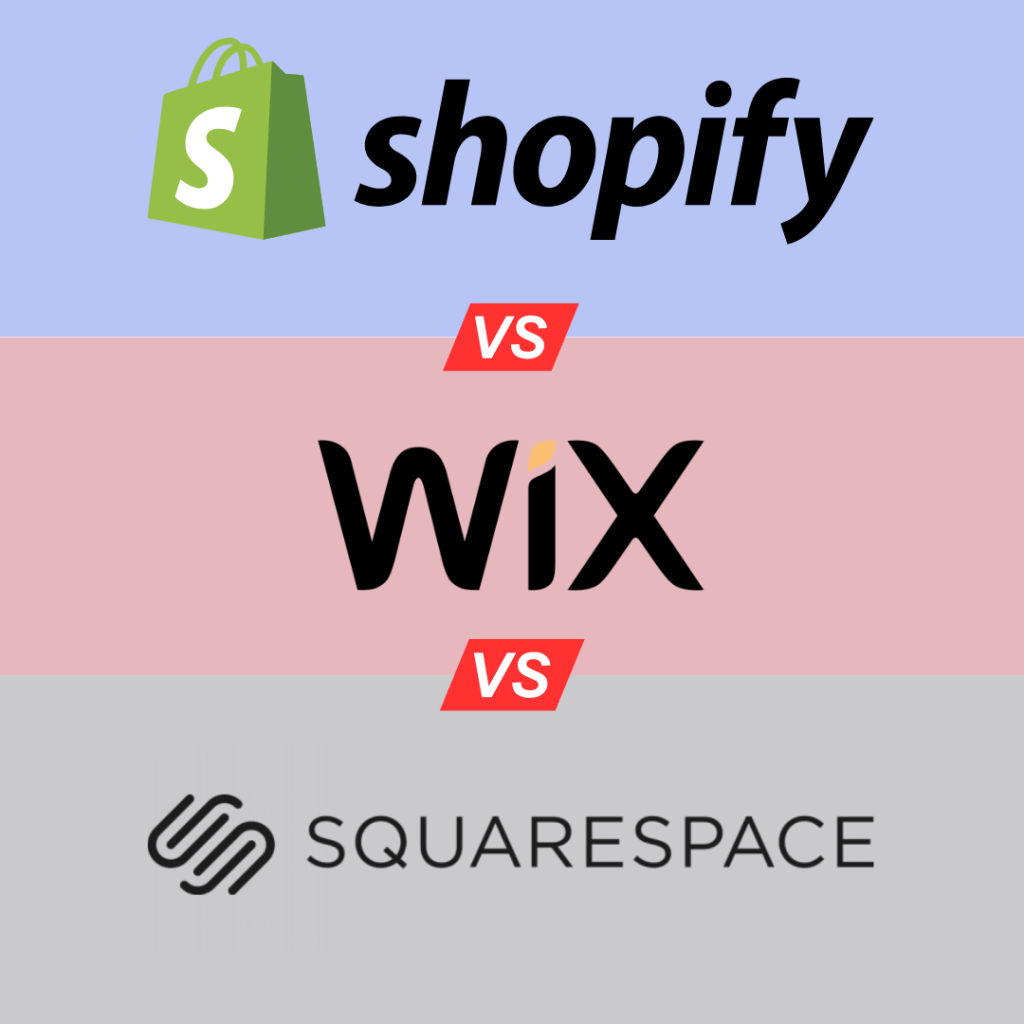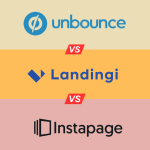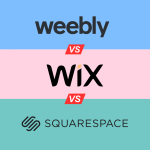Choosing the right e-commerce platform is crucial for building a successful online store. Among the most popular platforms are Shopify, Wix E-commerce, and Squarespace. Each has its strengths and is designed to meet different business needs. This blog post will provide a detailed comparison of these three platforms, helping you decide which is the best fit for your business, goals, and experience level.
Overview of the Platforms
- Shopify: Shopify is a dedicated e-commerce platform known for its robust features, scalability, and flexibility. It’s designed specifically for selling online and provides a wide range of tools to help you grow your business.
- Wix E-commerce: Wix started as a website builder and later added e-commerce capabilities. It’s ideal for small businesses that need an easy-to-use platform with strong design flexibility.
- Squarespace: Squarespace is known for its stunning templates and all-in-one platform. It’s perfect for creatives and those who want a beautifully designed online store with built-in e-commerce features.
Key Features Comparison
| Feature | Shopify | Wix E-commerce | Squarespace |
|---|---|---|---|
| Ease of Use | Beginner-friendly but with a slight learning curve. | Very intuitive with drag-and-drop functionality. | User-friendly, with a focus on design aesthetics. |
| Design Flexibility | Over 70 customizable themes; optimized for e-commerce. | Extensive customization with over 500 templates. | Stunning templates but with less customization than Wix. |
| E-commerce Features | Advanced e-commerce tools, including abandoned cart recovery and multi-channel selling. | Good for small to medium stores; lacks some advanced e-commerce tools. | Strong e-commerce features for small businesses, but less scalable. |
| SEO Capabilities | Robust SEO tools, fully customizable for optimization. | Decent SEO tools, easy to implement for beginners. | Solid SEO features with automatic indexing and clean code. |
| Pricing | Starts at $29/month; additional costs for apps and themes. | Starts at $27/month for Business plans; more for advanced features. | Starts at $27/month for Business plan; premium features available. |
| Third-Party Integrations | Extensive App Store with thousands of integrations. | Limited integrations but has essential apps available. | Fewer integrations; mostly built-in features. |
| Customer Support | 24/7 support via phone, chat, and email; extensive documentation. | 24/7 support with phone and chat, strong community support. | 24/7 email and chat support; premium plans include priority support. |
| Payment Options | Supports over 100 payment gateways, including PayPal, Stripe, and Shopify Payments. | Supports PayPal, Stripe, and Square. | Limited to Stripe, PayPal, and Apple Pay. |
| Scalability | Highly scalable for growing businesses. | Good for small to medium-sized businesses; can scale with limitations. | Best for small to medium businesses; less suited for large enterprises. |
Pros and Cons
Shopify
| Pros | Cons |
|---|---|
| Designed specifically for e-commerce, with powerful features. | Costs can add up with apps, themes, and transaction fees. |
| Scalable, suitable for businesses of all sizes. | Learning curve for beginners. |
| Extensive App Store for added functionality. | Limited design flexibility compared to Wix. |
| Multi-channel selling (Amazon, eBay, social media). | Default themes are less visually stunning than Squarespace. |
Wix E-commerce
| Pros | Cons |
|---|---|
| Extremely user-friendly with a drag-and-drop editor. | Lacks advanced e-commerce features like Shopify. |
| Great design flexibility with over 500 templates. | Performance can slow with too many features/plugins. |
| Affordable pricing for small businesses. | Less scalable for larger businesses. |
| Strong SEO tools for beginners. | Limited third-party integrations compared to Shopify. |
Squarespace
| Pros | Cons |
|---|---|
| Beautiful, high-quality templates ideal for creatives. | Limited customization compared to Wix. |
| All-in-one platform with built-in e-commerce tools. | Fewer third-party integrations and payment options. |
| Great for small to medium-sized stores. | Less scalable for large businesses. |
| Strong SEO features with clean code. | Pricing can be high for advanced plans. |
Frequently Asked Questions (FAQs)
1. Which platform is best for beginners?
- Wix E-commerce is the most beginner-friendly, with its intuitive drag-and-drop editor. It’s ideal for those who want to quickly set up a store without much technical knowledge.
2. Which platform offers the best design flexibility?
- Wix E-commerce provides the most design flexibility, with over 500 customizable templates. Squarespace offers the most visually appealing templates but with less flexibility.
3. Which platform is best for scaling a business?
- Shopify is the most scalable platform, making it ideal for businesses that plan to grow. Its advanced e-commerce features and extensive app integrations support large and complex stores.
4. How do these platforms handle SEO?
- Shopify offers the most robust SEO tools, allowing for deep customization. Wix E-commerce and Squarespace both provide solid SEO features, but Wix is easier for beginners to implement.
5. Which platform is most affordable for small businesses?
- Wix E-commerce is generally the most affordable option for small businesses, offering competitive pricing with strong features.
Use Cases
Shopify:
Best for businesses that prioritize e-commerce functionality and scalability. If your goal is to build a large online store with advanced features like multi-channel selling, Shopify is the best option.
Wix E-commerce:
Ideal for small to medium-sized businesses that need a balance between design flexibility and ease of use. It’s perfect for those who want to create a visually appealing store with strong SEO features.
Squarespace:
Great for creatives and small businesses that prioritize design. If your business revolves around visual content or you need a beautifully designed online store with built-in e-commerce features, Squarespace is the way to go.
Conclusion
Choosing between Shopify, Wix E-commerce, and Squarespace depends largely on your business goals and experience level.
- Choose Shopify if you need a powerful, scalable e-commerce platform with advanced features.
- Choose Wix E-commerce if you’re looking for an easy-to-use platform with design flexibility and a good balance of features.
- Choose Squarespace if you value aesthetics and need a beautifully designed store with strong e-commerce capabilities.
Each platform offers unique strengths, so consider your specific needs and goals when making your decision.



